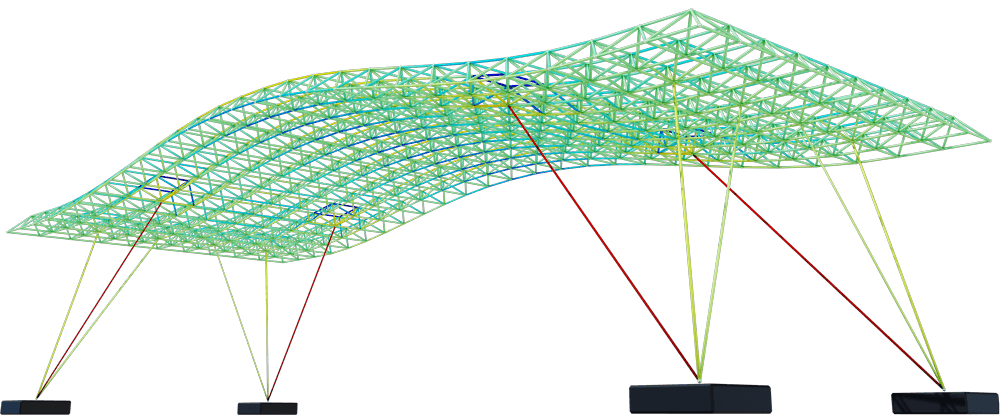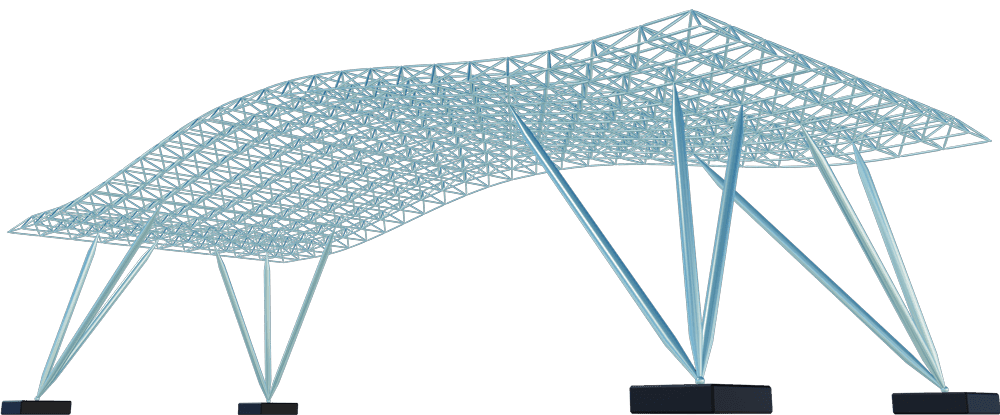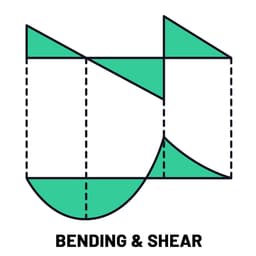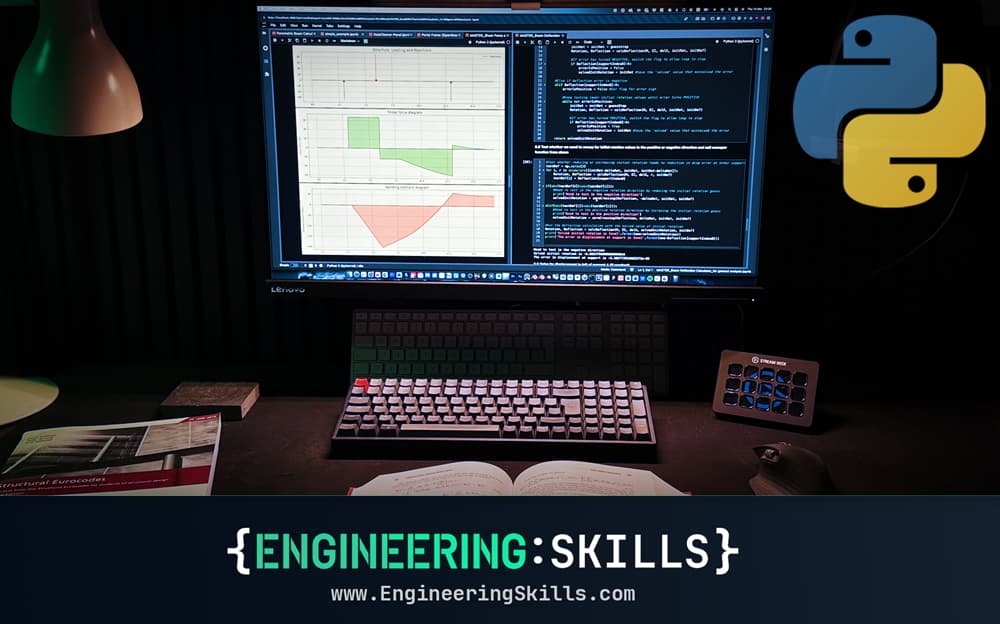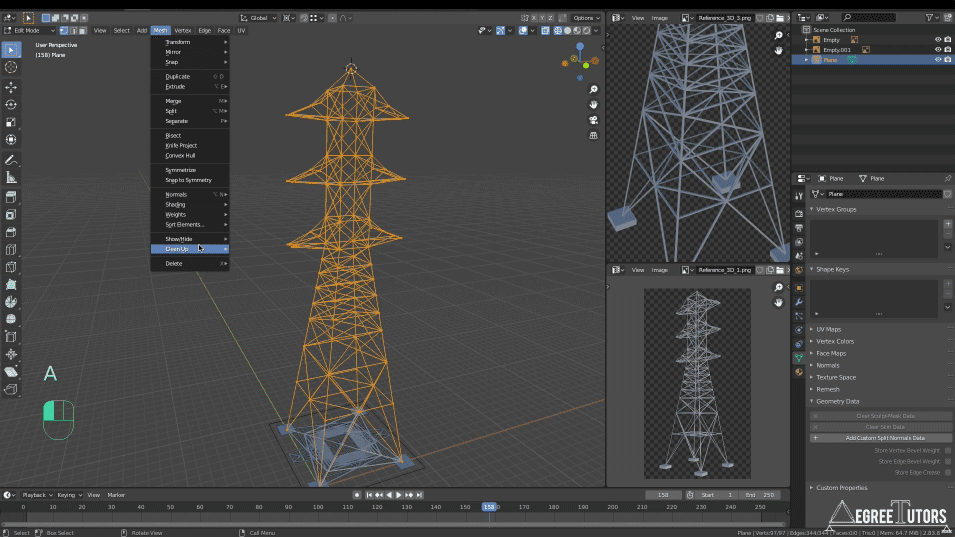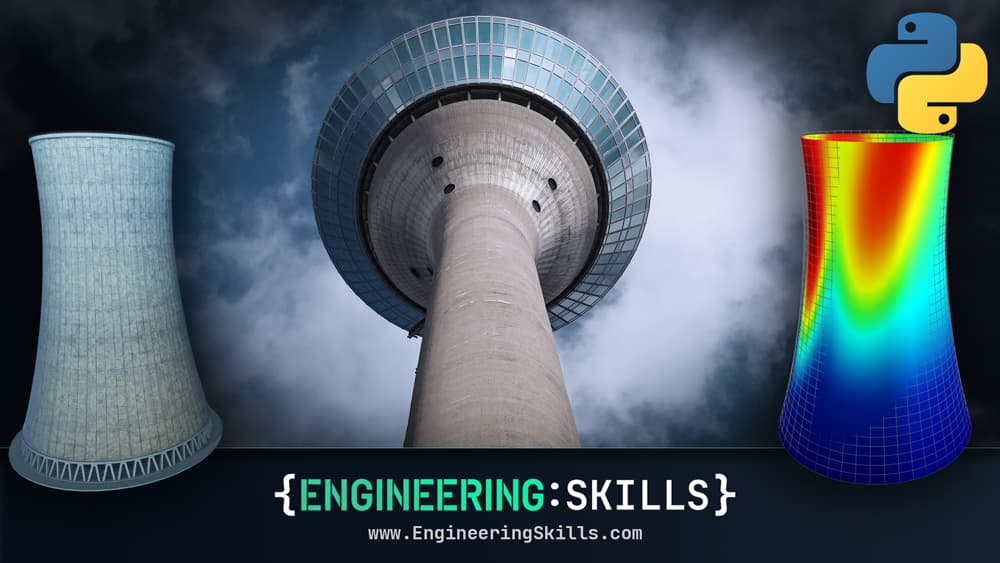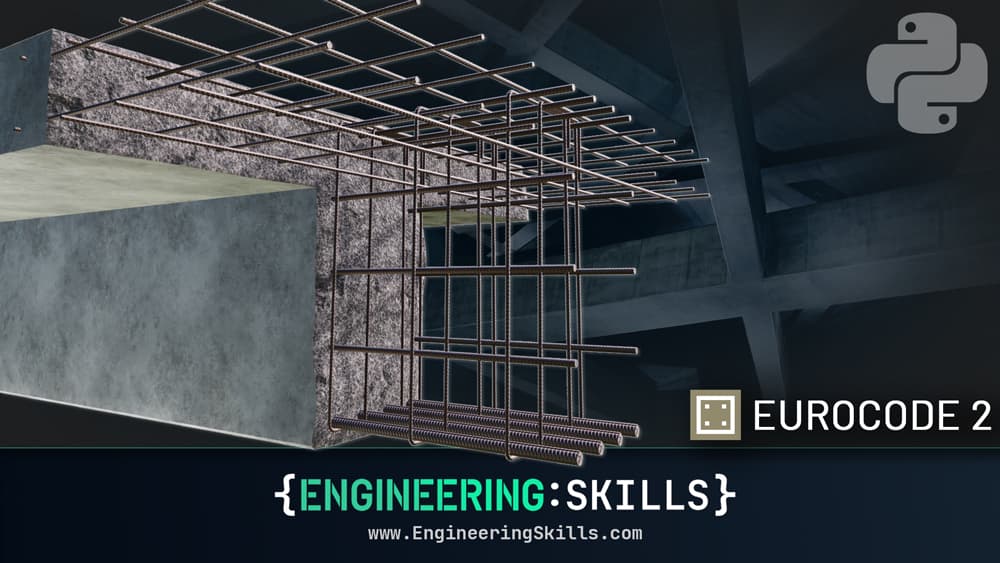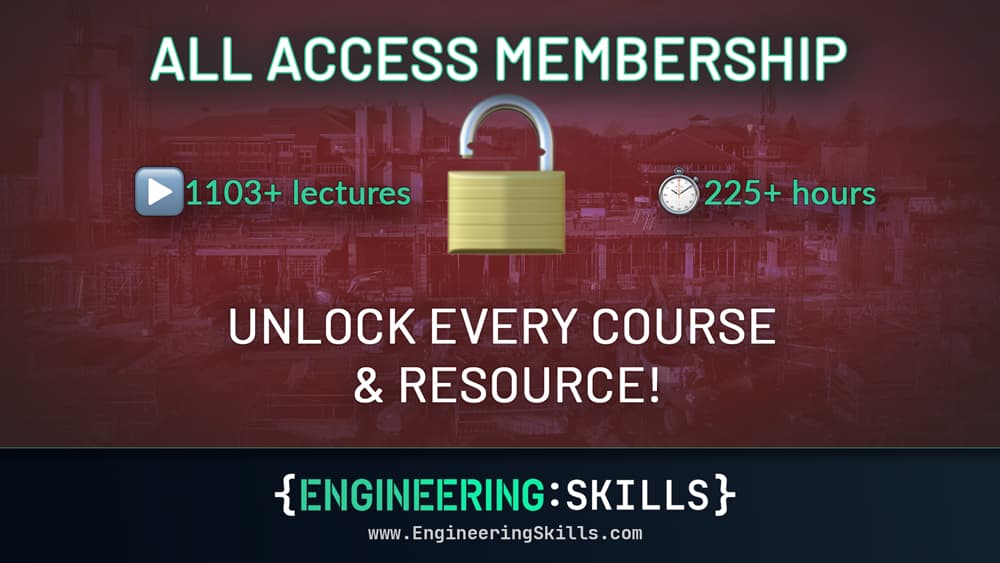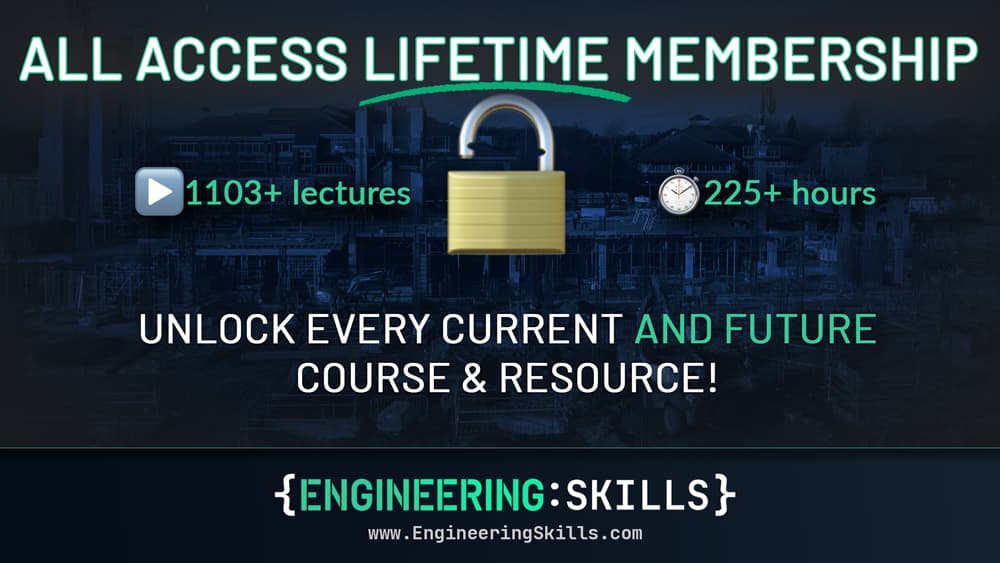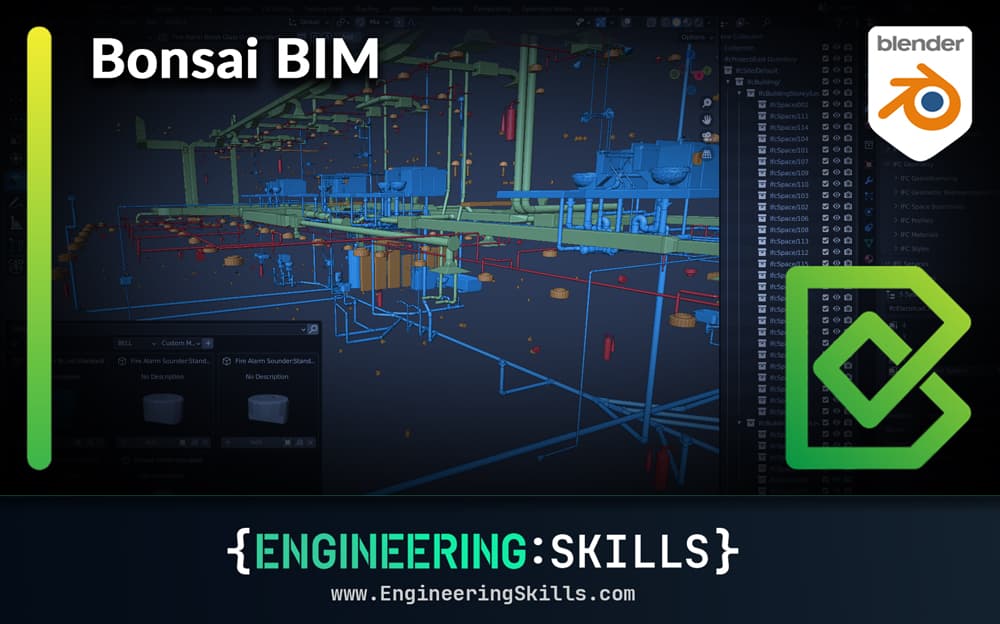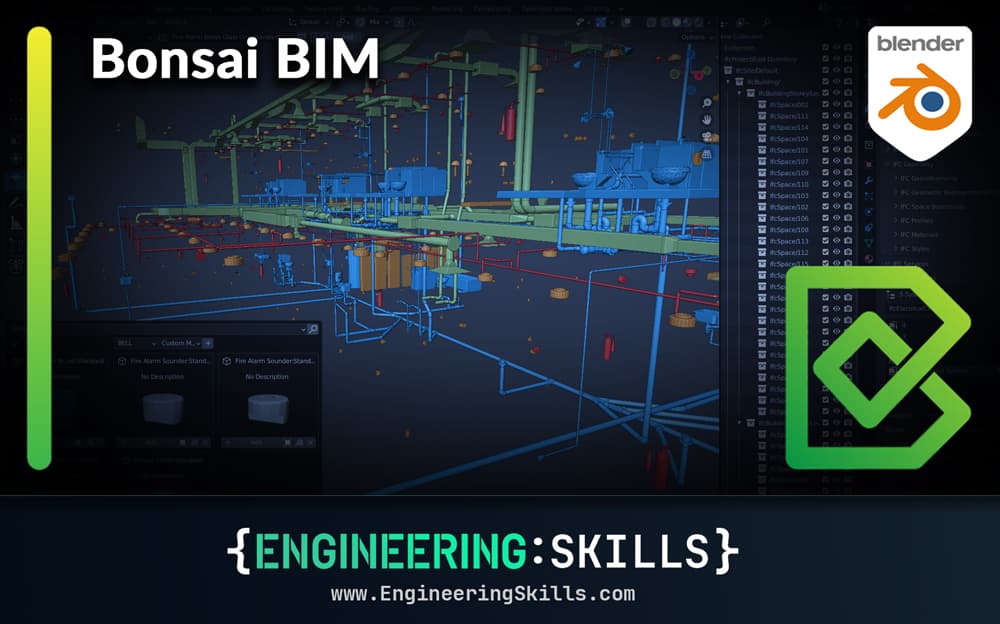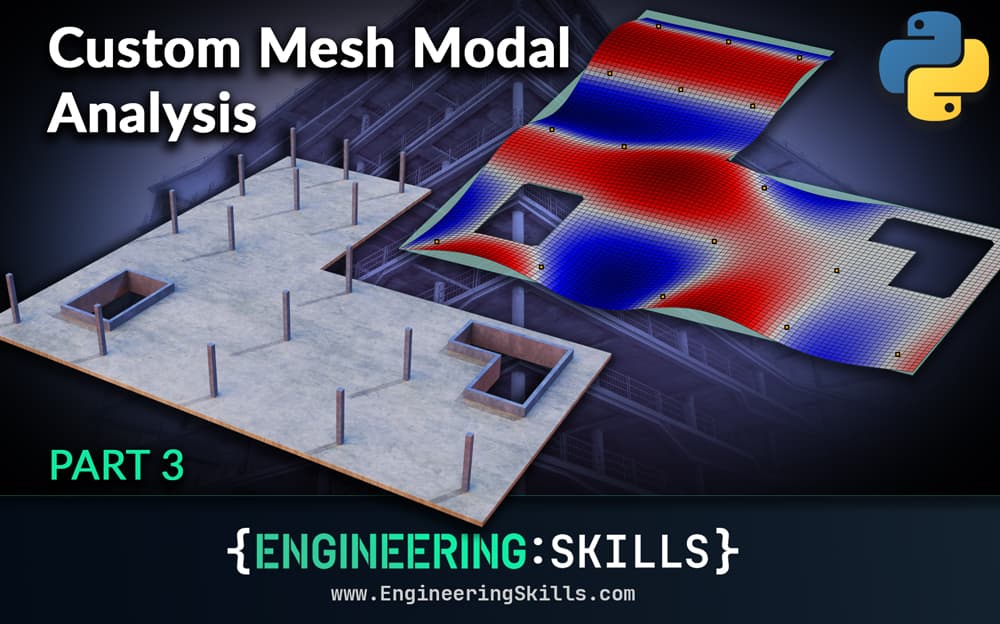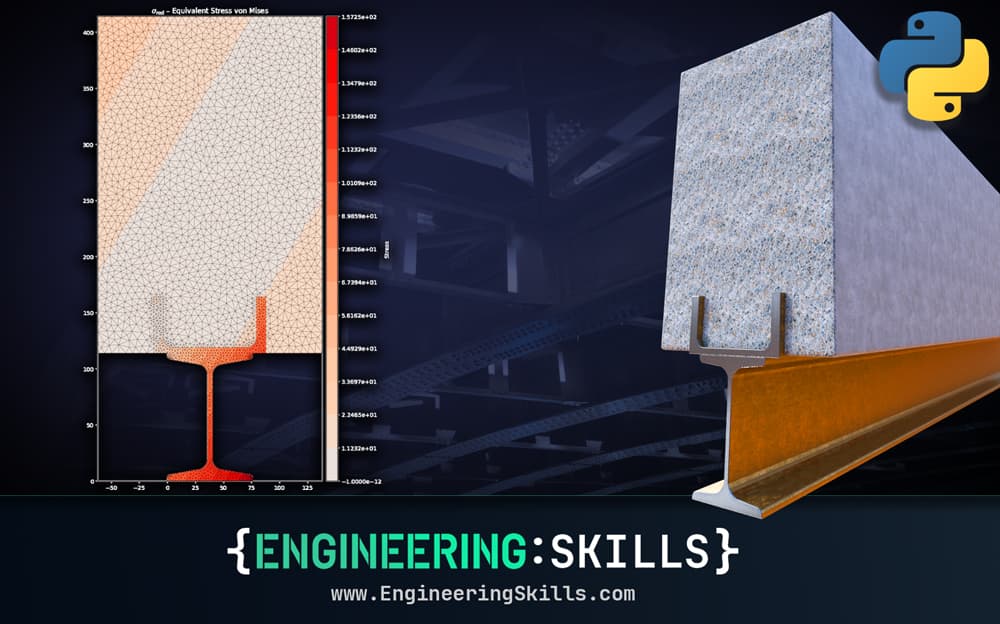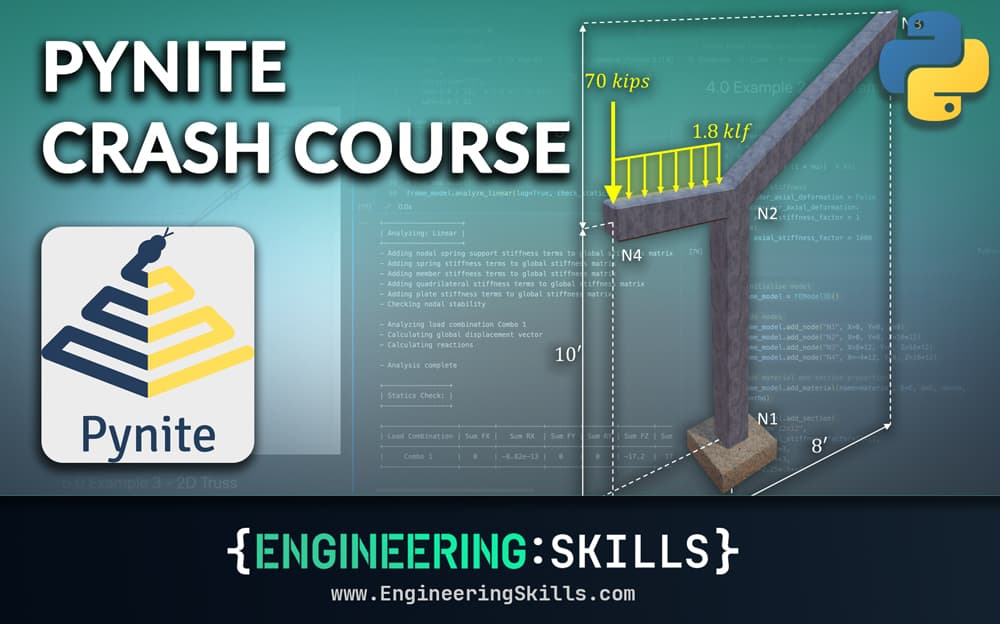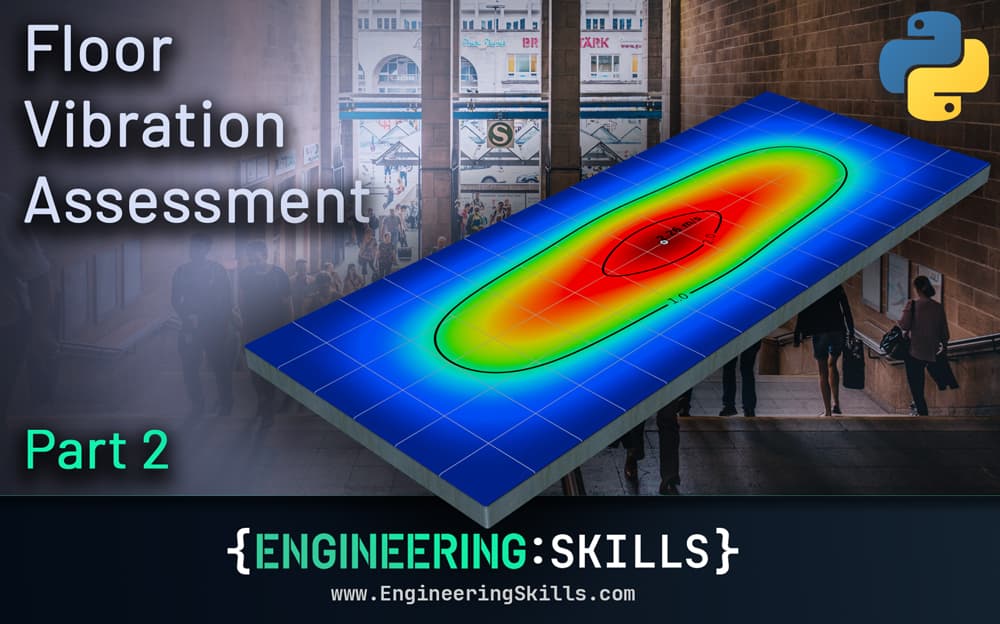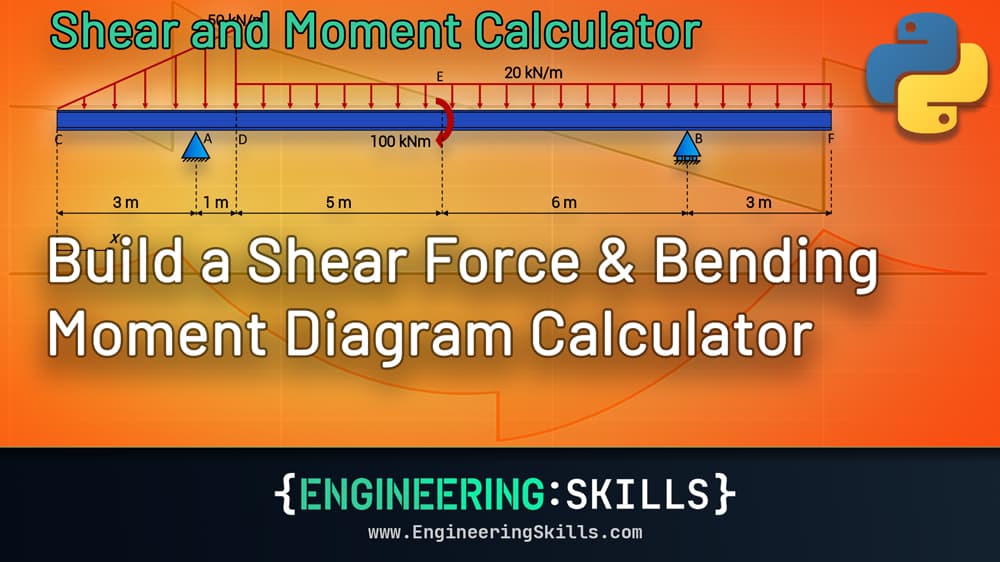Welcome to EngineeringSkills.com
Our self-paced online courses help engineering students, professional engineers, architects and other construction industry professionals level up their engineering skills.
Our courses are perfect for...
Students
Engineering students who need to master the fundamentals…especially if you’re engineering professors are leaving you behind
Professional Engineers
Professional engineers who need a refresher on anything from structural dynamics to finite element analysis (the stuff you know you should know)
Construction Industry Professionals
Other construction industry professionals who want to better understand what their engineering colleagues are talking about
Anyone who wants to learn Python
Anyone in the construction industry (or any industry really) who wants to learn how to use Python to optimise their workflows

EngineeringSkills Library Search
Search our entire library of tutorials, projects and courses.
- Lectures
- 1141+
- Hours of HD video
- 234+
- Courses and Projects
- 30
- of downloadable resources
- Hundreds
Where to start?
WHAT DO YOU WANT TO LEARN?
Pick a specific course, or work through a crafted learning pathway. Work at your own pace with dedicated Q&A support if and when you need it.
- Deep-dive Courses.
- In-depth video courses that walk you through a complete topic, analysis technique or design method, from start to finish with Q&A support throughput.
- Python Projects.
- Tightly focused, bite-size coding projects that teach you how to implement an engineering analysis using Python - learn engineering and coding simultaneously.
- Tutorials.
- Written tutorials that cover engineering analysis and design topics in plain English with plenty of worked examples.
🦾 Enlist the machines!
PRACTICAL PYTHON FOR ENGINEERS
Harness the power of coding and learn how to use Python to speed up your engineering workflows.
- No coding experience required.
- You’ll be up and running with your own development environment in no time.
- Build your own analysis tools.
- Then use what you learn to automate and optimise your workflows.
- Learn open-source 3D modelling tools.
- Analysis codes are only useful if you can generate the structure/mesh input data - learn how to use Blender to build 3D models for analysis.
- Download all code.
- Either build your own codes as you work through a course or simply download the complete course codes.
The ability to code is a superpower - through code you gain leverage which allows you to work with incredible speed and efficiency. Once you combine your engineering know-how with the ability to code, you'll wonder how you managed without it! Check out our free getting started tutorial.
🦾 Enlist the machines!
PRACTICAL PYTHON FOR ENGINEERS
Harness the power of coding and learn how to use Python to speed up your engineering workflows.
- No coding experience required.
- You’ll be up and running with your own development environment in no time.
- Build your own analysis tools.
- Then use what you learn to automate and optimise your workflows.
- Learn open-source 3D modelling tools.
- Analysis codes are only useful if you can generate the structure/mesh input data - learn how to use Blender to build 3D models for analysis.
- Download all code.
- Either build your own codes as you work through a course or simply download the complete course codes.
The ability to code is a superpower - through code you gain leverage which allows you to work with incredible speed and efficiency. Once you combine your engineering know-how with the ability to code, you'll wonder how you managed without it! Check out our free getting started tutorial.
Why EngineeringSkills.com?
A LEARNING PLATFORM FOR TECHNICAL PEOPLE
Not all online courses are created equally! EngineeringSkills has been built to meet the specific needs of its technically-minded users!
- Custom GPT model.
- An AI tutor to ask questions and help you clarify your understanding as you work through lectures.
- Python in the browser.
- Run your course code directly in the browser or just use the browser-based Python IDE to write your own code.
- Code/Math rendering engine.
- Reading text is only half the story. Our code and math rendering engine makes sure you can see the code and equations as they were intended.
Over 20,000 students and engineers have taken our courses.
Here's what they have to say:
Explore our Latest Courses
Explore everything from fundamental statics to multi-degree of freedom structural dynamics to DIY finite element solvers and more.
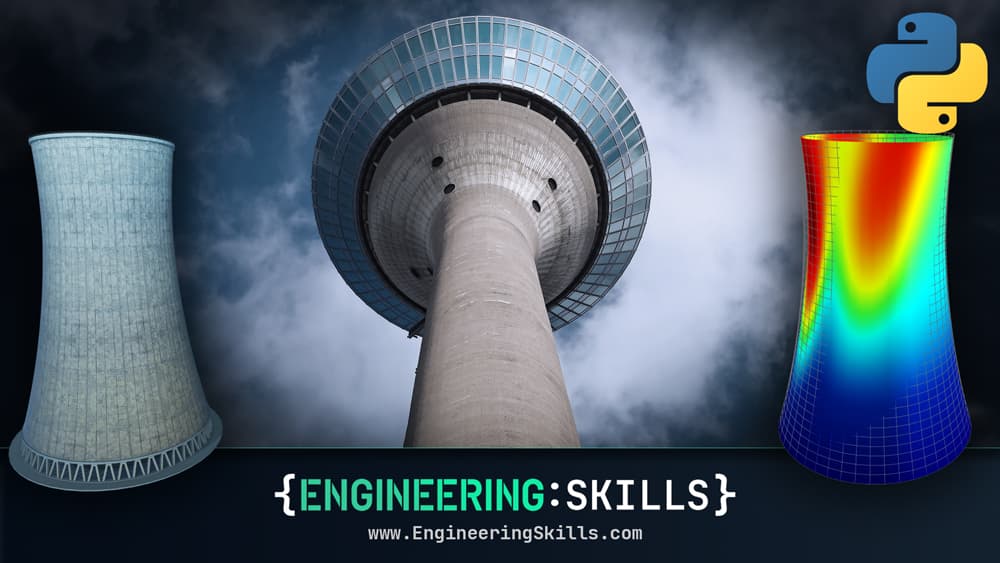
Finite Element Analysis of Plate and Shell Structures: Part 2 - Shells
Expanding from plate to shell elements - build a workflow that unlocks the behaviour of 3D shell structures
In part 1 of our exploration of plate and shell structures, we built the foundation! We established the core mechanics and turned that knowledge into a working finite element code for plates. In part ...more
INTERMEDIATE
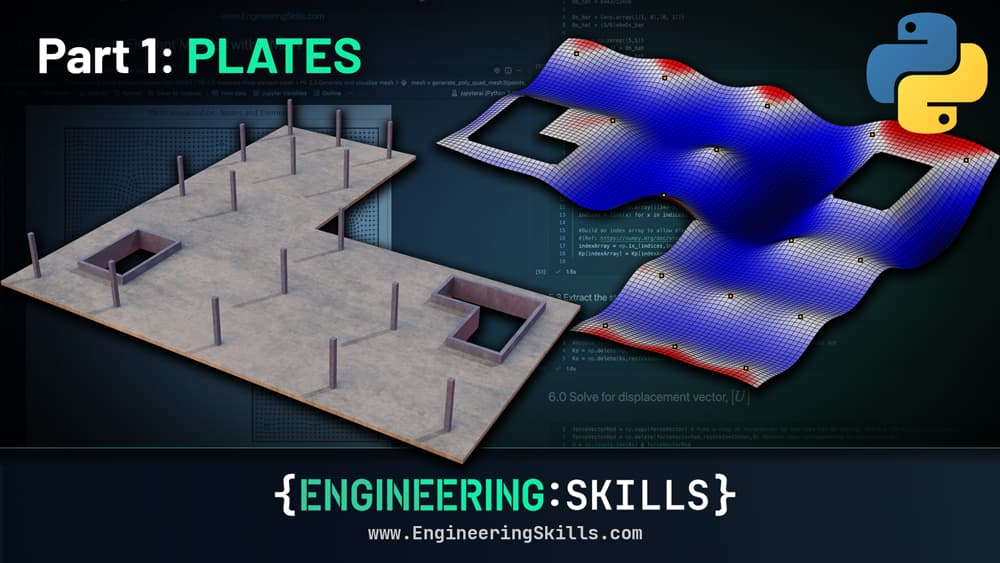
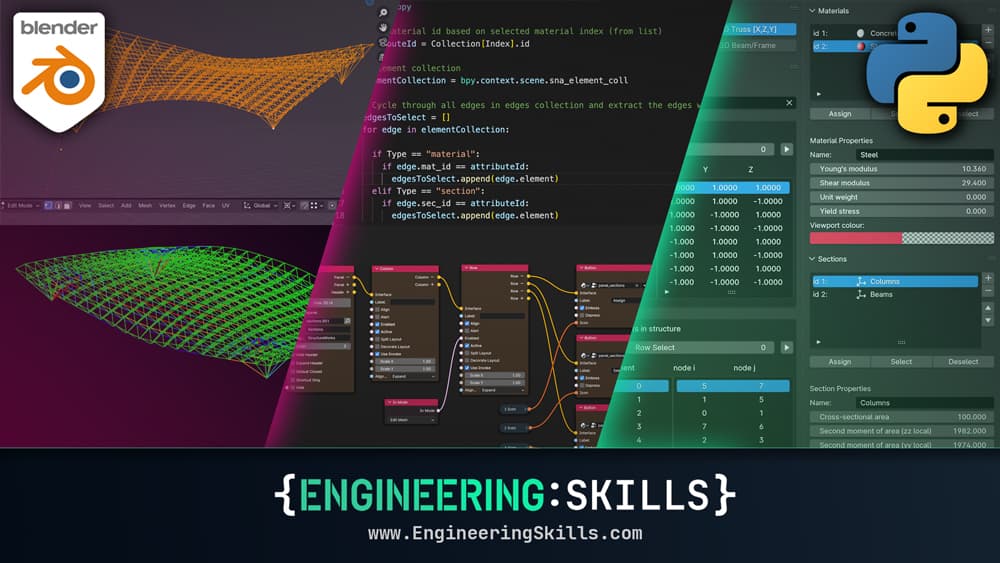
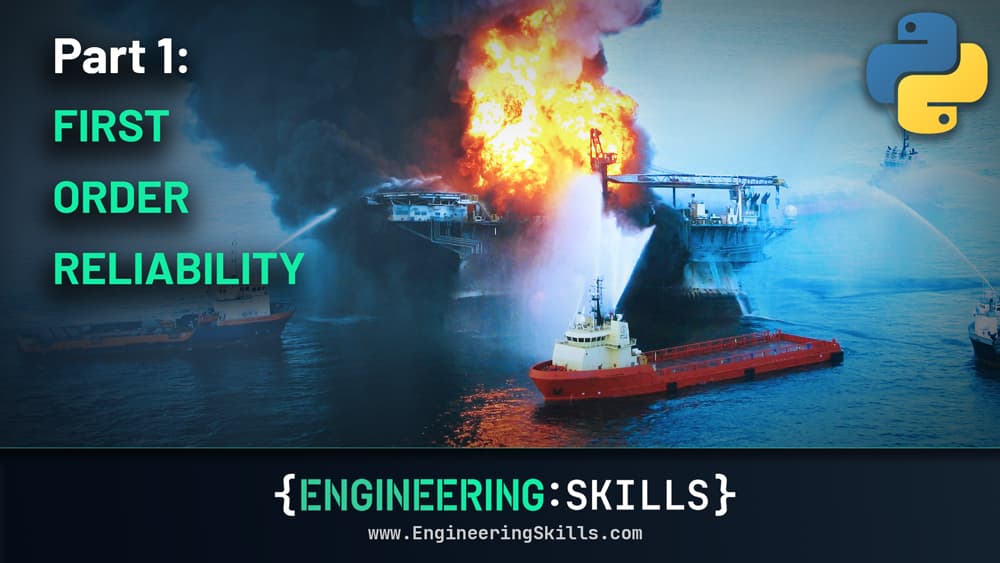
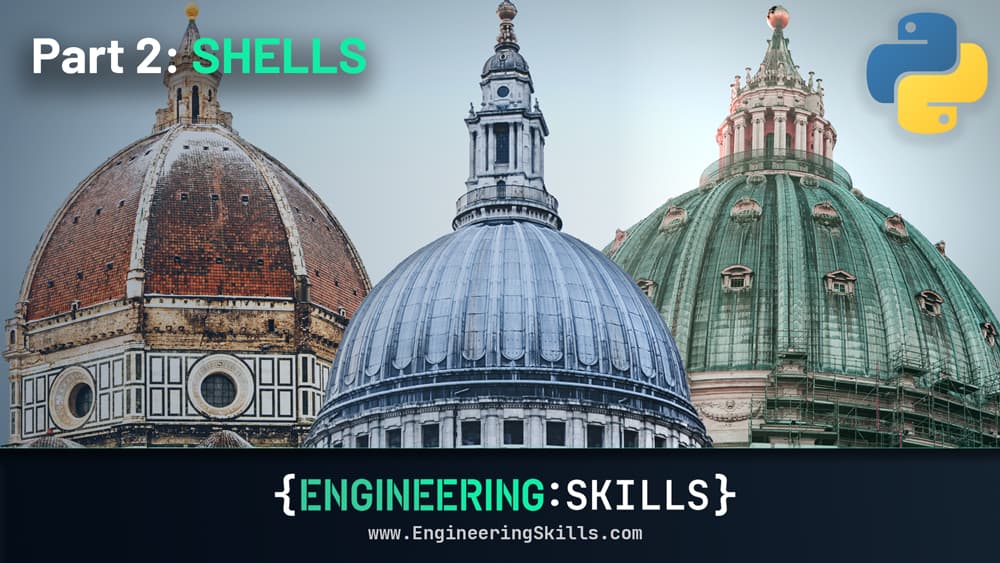
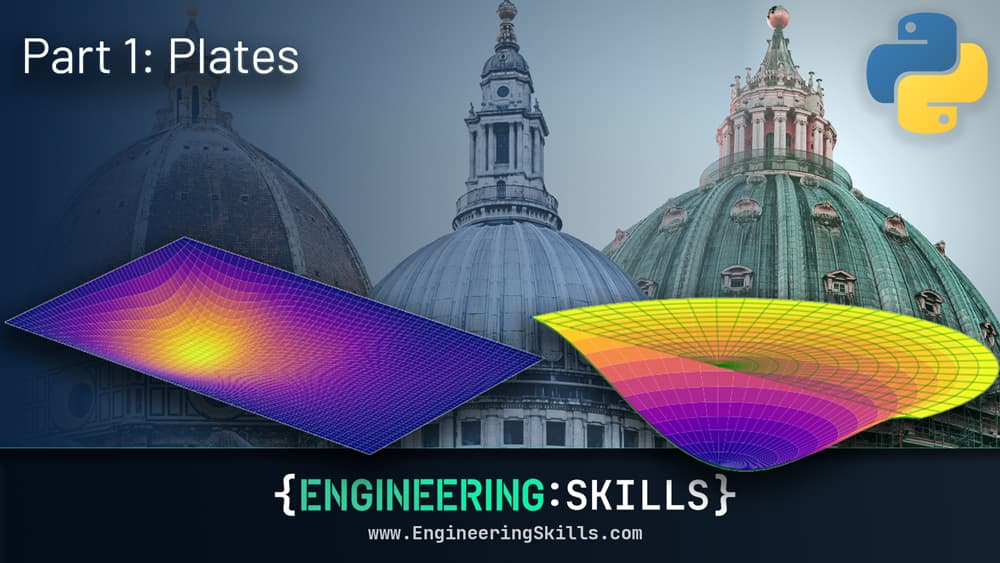
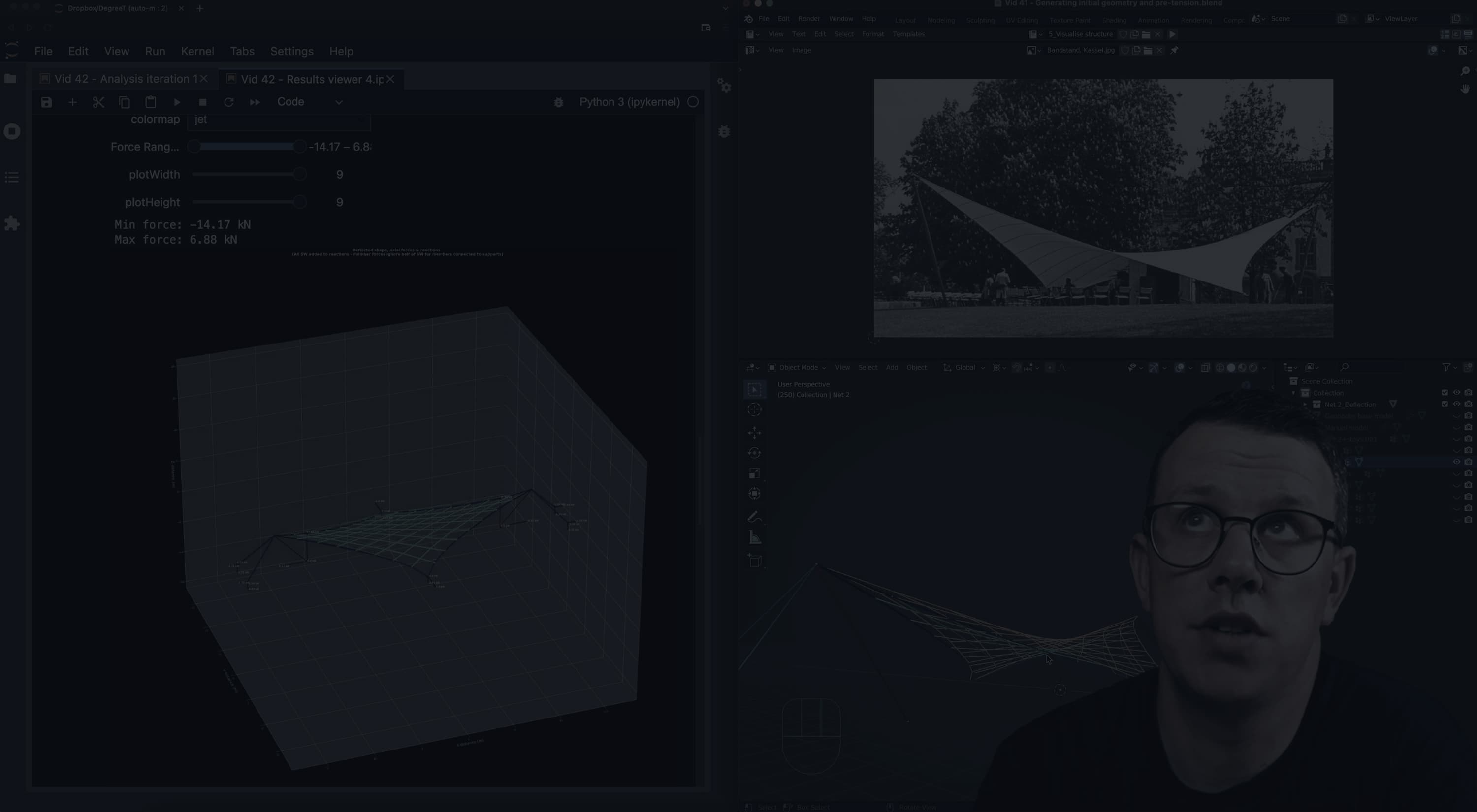
🔓 Unlock All EngineeringSkills Courses
Unlock every course, tutorial and resource by subscribing to our membership or purchasing lifetime access to all current and future courses for a one-time fee.
- Lectures
- 1141+
- Hours of HD video
- 234+
- Courses and Projects
- 30
- of downloadable resources
- Hundreds
Access everything
MEMBERSHIP SUBSCRIPTION
Subscribe to our All Access Membership and access all courses and tutorials for a monthly or annual subscription. You can learn a lot in a year!
Access everything...forever!
LIFETIME MEMBERSHIP
Purchase our Lifetime All Access Bundle and get all current and future courses for a single one-off payment. Never pay for another course again!
Access everything...forever!
LIFETIME MEMBERSHIP
Purchase our Lifetime All Access Bundle and get all current and future courses for a single one-off payment. Never pay for another course again!
Price Guarantee
Lock in your subscription and avoid any future price increases as we continue to add more courses. All future renewals are at your original rate.
Priority Q&A support
Anyone enrolling in an EngineeringSkills course can access our Q&A community support forum, but annual and lifetime members get priority support.
Early access to new content
Annual and lifetime members get early access to all course content as it’s being produced, so you don’t need to wait for a course to be released for general enrollment.
Our Recent Tutorials
Dive into our latest tutorials and guides for a concise and practical look at anything from structural analysis to computational fluid dynamics.
Bonsai BIM - The Essential IFC Tool for Structural Engineering Workflows
The IFC tool every structural engineer should have in their toolkit
The architecture, engineering and construction (AEC) industry is evolving rapidly toward openBIM workflows centred on the IFC standard. Whether you're using Revit, Tekla Structures, Allplan or any oth...more

Petru Conduraru
Combining GMSH and OpenSeesPy for dynamic finite element analysis of floor structures
In part 3 of our series on modal analysis of floors, we'll bring together the mesh generation and modal analysis workflows we developed in parts 1 and 2. We’ll use what we learned about GMSH and OpenS...more

Dr Seán Carroll
Analysing Indeterminate Beams and Frames using the Moment Distribution Method
[UPDATED] In this tutorial we'll explore the moment distribution method. This is an excellent technique for quickly determining the shear force and bending moment diagrams for indeterminate beam and f...more

Dr Seán Carroll
Understanding Tresca and von Mises Elastic Failure Theories
In this tutorial, we’ll introduce the concept of an elastic failure theory and see just how helpful these are in evaluating the state of stress in a structure. We’ll focus on the two most widely used ...more

Julian Haudek
A Pynite Crash Course - Open Source Finite Element Modelling for Structural Engineers
Open-source libraries like Pynite give structural engineers an opportunity to step outside the confines of commercial software to quickly analyse simple systems. They're not just for hobbyists or prog...more

Dan Ki
Reinforced Concrete Column Design to ACI 318-14 with Python and concreteproperties
In this tutorial, we'll explore the design of non-sway short columns using ACI 318-14. We'll cover the basics and explain some of the nuances of column design per ACI 318-14. Although manually calcula...more

Dan Ki
Calculating response factors for floor vibration and assessing performance
In part 2 of this series, we’re going to work our way through the analysis of two different structures: a low-frequency footbridge and a high-frequency floorplate. In each case, we'll calculate the mo...more

Dr Seán Carroll
Hi, I’m Seán...

...the founder of EngineeringSkills.com. Before turning all my attention to teaching online, I spent 10 years teaching students about engineering analysis and design at the University of Exeter, Warwick University and The University of Nottingham. I’m a Chartered Engineer and Fellow of the Higher Education Academy.
EngineeringSkills.com was founded to support students and construction industry professionals to enhance their engineering analysis and design skills. Whether you want to sharpen up on the basics of constructing shear and moment diagrams or want to better understand how to analyse complex, indeterminate structures (with or without a computer), by taking courses on EngineeringSkills.com, you’ll build the knowledge and skills you need.
If you’re interested in leveraging the power of Python programming to supercharge your analysis and design, then this is also the place for you…whether you’re brand new to programming or already proficient.
When I'm not in front of a microphone or buried in a text-book, you'll find me out in the wild, doing some practical engineering...far far away from the finite elements and differential equations!

READY TO GET STARTED?
Register for a free EngineeringSkills account and start working through one of our free courses.
Why not try buiding your own shear force and bending moment diagram calculator or learn how to use the Duhammel integratal to simulate crowd loading? 👇
Building a Shear Force and Bending Moment Diagram Calculator in Python
In this short Python Project, build a simple calculator for statically determinate beams
After completing this project...
- You will understand how to analytically determine the shear force and bending moment diagram for a simply supported beam
- You will understand how to build a Python script to automate the calculation
- You will be comfortable building data visualisations using the plotting library Plotly
- You will be able to apply what you learn to automate other routine engineering calculations
Simulating Crowd-induced Vibrations using the Duhamel Integral
In this Python project, we build a crowd-induced vibration simulation using the Duhamel Integral in Python
After completing this project...
- You will understand how to use the Duhamel Integral to calculate the dynamic response of SDoF systems
- You will be able to implement the solution using Python in a Jupyter Notebook
- You will understand how this numerical solution can be used to simulate the response due to quasi-random human-induced excitation
- You will be able to build a data visualisation to communicate the output of your simulation
